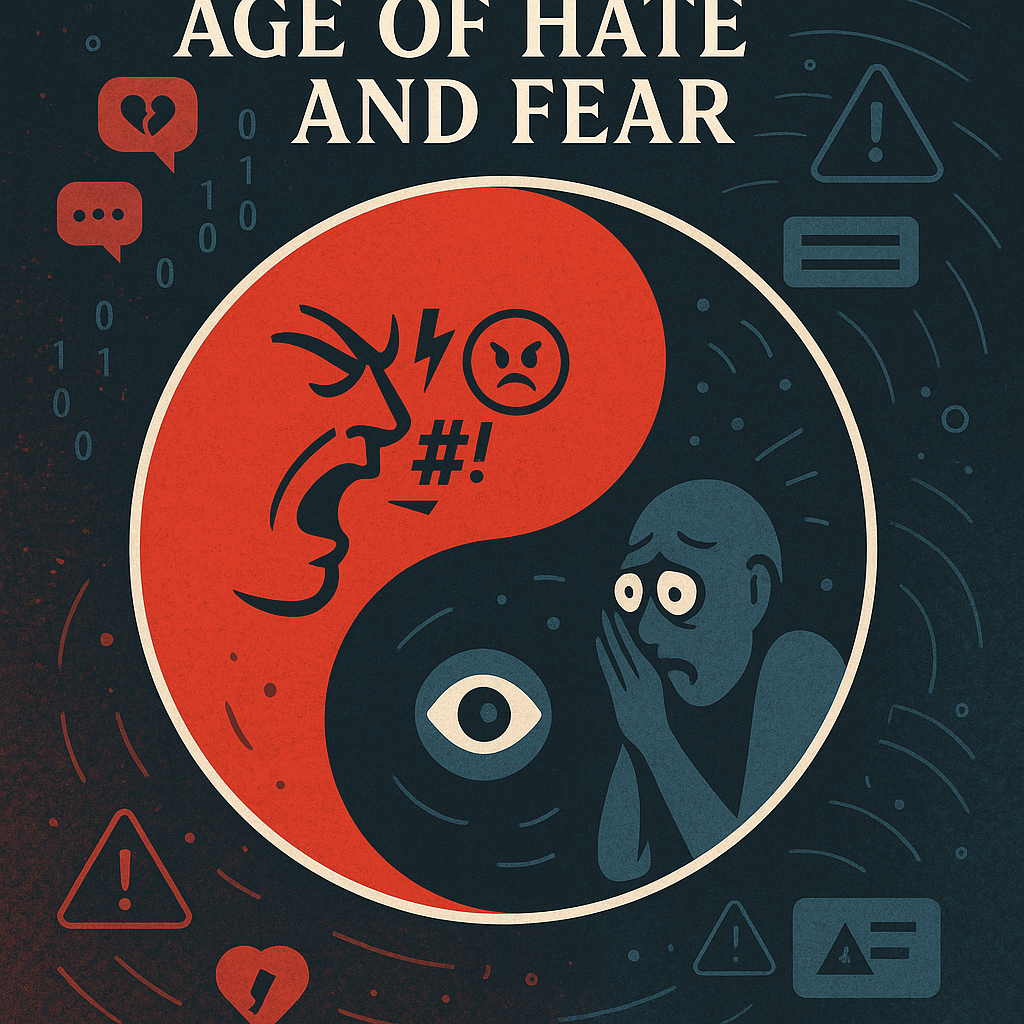Age of Hate and Fear: Why Anger and Anxiety Rule Our Feeds - and How to Push Back
I decided to write this post to be yet another reminder how current world is influencing our emotions and behavior.
We live in an era where two powerful emotions - hate and fear - are amplified online. Algorithms reward outrage, and disinformation campaigns stoke panic. The result is a constant barrage of content designed to make us click, share, and worry. Here’s a clearer look at the facts - and some simple ways you can fight back.

Hate in the News Feed
- In 2018, Facebook researchers found that posts triggering the “angry” reaction were shown about five times more often than those earning a simple “like.”
- The Facebook whistleblower Frances Haugen testified that Facebook’s algorithm favored content that elicited strong emotional reactions, which often included outrage.
- A 2020 New York University study found that Facebook pages known for disseminating misinformation - including some featuring extremist or hateful content - garnered up to six times more interactions than reputable news sources of comparable size.
When hate drives more comments, shares, and time spent, the platform’s bottom line benefits - even if trust and civility suffer.
Fear in the Wild
- U.S. intelligence agencies reported that Russia’s Internet Research Agency operated over 30,000 fake social-media accounts during the 2016 election, reaching at least 126 million Facebook users.
- EUvsDisinfo, the EU’s fact-checking project, has documented more than 15,000 Kremlin-linked falsehoods since 2015. Common themes: “the West is collapsing,” “vaccines are dangerous,” and “Ukraine is run by Nazis.”
- A study by the Oxford Internet Institute revealed that, among a sample of 1.3 million Twitter accounts tweeting about Russian politics between 2014 and 2015, nearly 45% were identified as automated bots actively amplifying pro-Kremlin narratives.
Fear hijacks our survival instinct. A scary headline makes us click and share before we pause to verify.
Why These Emotions Dominate Now
- Infinite reach: A single post can hit millions in seconds.
- Instant feedback: Outrage and panic earn quick likes and shares, which algorithms interpret as high-quality content.
- Low friction: It’s easy to share before fact-checking or finishing the article.
The Brain Chemistry at Work
Why is it so difficult to look away? Two chemicals play a big role:
- Cortisol - the “stress hormone.” Rapid-fire updates and heated arguments raise our cortisol levels, making us anxious yet hyper-focused. This vigilance keeps us scrolling and searching for more.
- Dopamine - the “reward hormone.” A colorful news feed, comments, and catchy titles trigger tiny hits of dopamine. Each like or share can feel like a mini-reward, forming a habit loop that’s hard to break.
Colorful visuals and clickbait headlines heighten these responses further. Flashy graphics, sensational language, and dramatic images lure us in like a carnival barker - promising excitement if we just click one more time.
Strategies to Push Back
Against Hate
- Slow the Scroll - Pause before reacting. Ask, “Who benefits if I blow up right now?”
- Curate Consciously - Unfollow or mute pages full of insults and dehumanizing language. Seek out sources that rely on evidence and balanced reporting.
- Go Offline - Tough conversations are better face-to-face. Research shows in-person discussions are less likely to spiral into hostility.
Against Fear
- Triple-Source Everything - Only trust alarming news if two reputable outlets have confirmed it. If not, treat it as rumor.
- Set News Windows - Allocate specific times to catch up on current events instead of doom-scrolling all day.
- Build Real-World Ties - Join local activities or community organizations. In-person connections offer balanced perspectives bots can’t provide.
More Strategies
- Shift to a Basic Phone - Eliminating or drastically reducing push notifications can cut stress levels. Fewer apps and distractions keep you from spiraling into outrage or fear-driven social feeds.
- Embrace Microlearning - Use educational apps to build new skills and habits. Platforms offering short lessons - like language apps or quick tutorials - reward curiosity rather than anxiety. It’s an easy way to spend downtime productively while steering clear of inflammatory media.
Bottom Line
Algorithms and shadowy actors turn hate and fear into high-speed, high-profit commodities. By understanding how they work - and by pausing, curating, and reconnecting in real life - you reclaim control over your feed and your emotions.
🙏 Share, to spread the word.